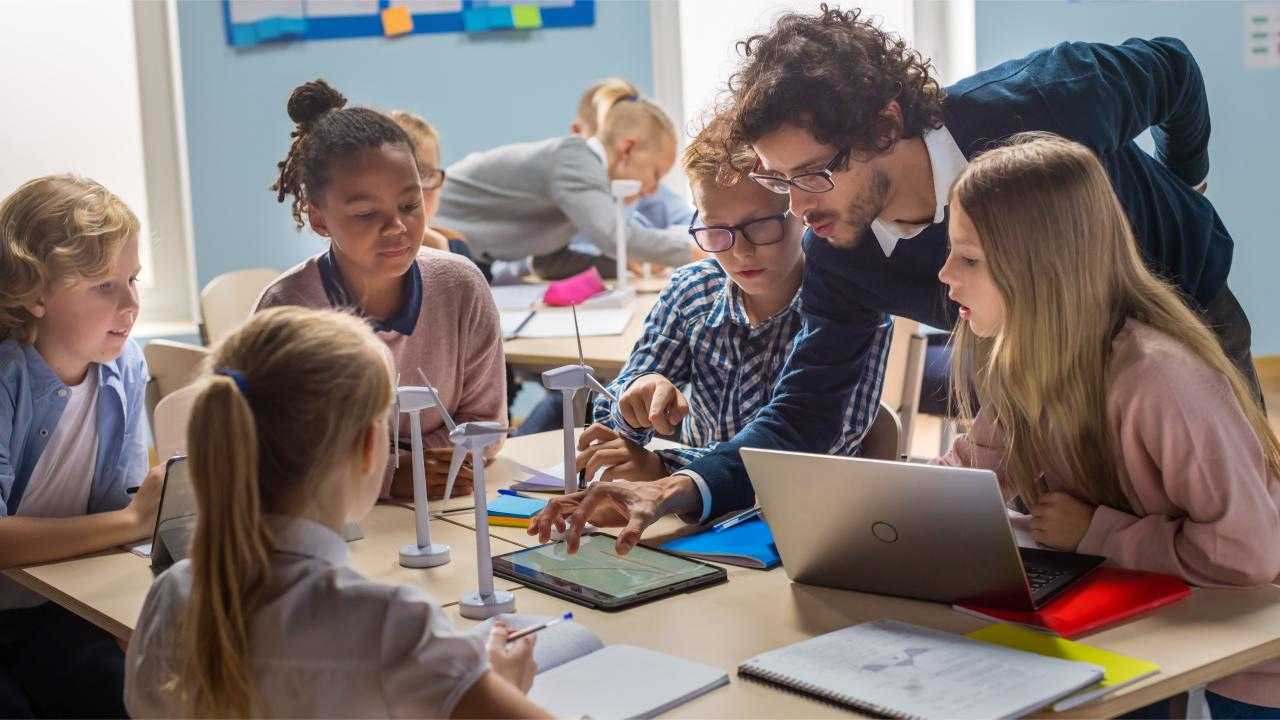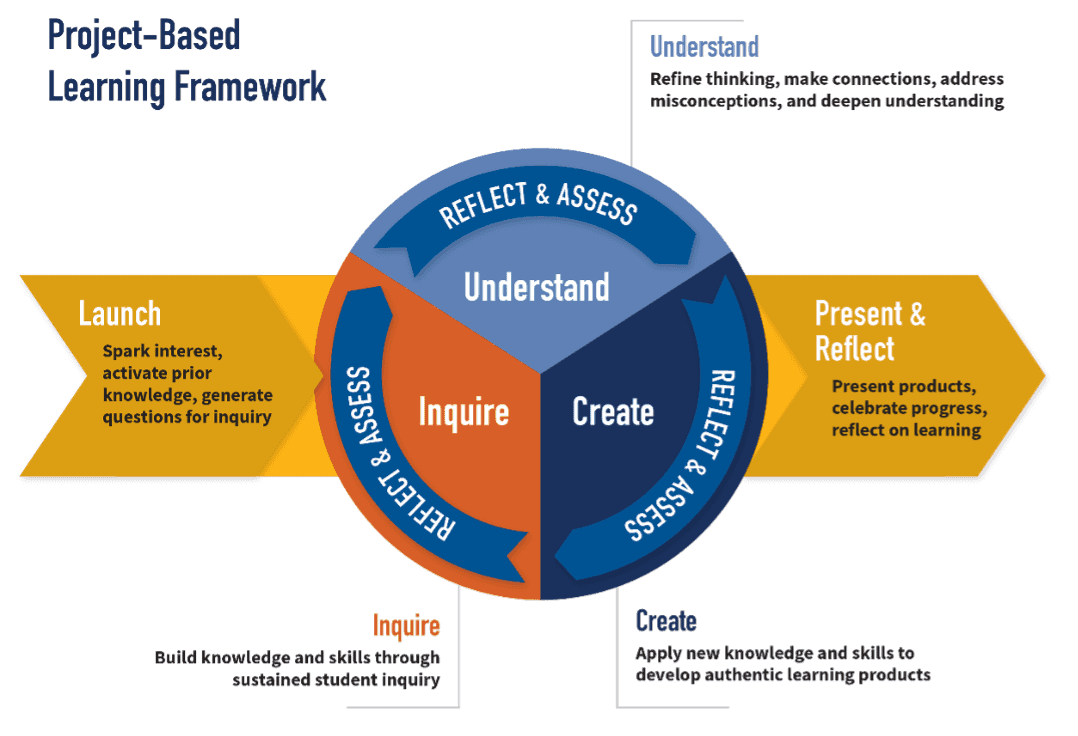Project-based learning (PBL) is a teaching method in which students become stronger learners through the experience of investigating and developing solutions to complex questions and problems by applying knowledge and skills from multiple disciplines. Beginning with a driving question to frame an academic unit, PBL promotes inquiry and critical thinking by requiring students to define problems, formulate relevant questions, analyze, and evaluate information, create and refine products, and present and defend their work to a public audience. Through this process of inquiry and discovery, students learn to work collaboratively through multiple iterations of their PBL products and they learn to evaluate themselves and others, solve problems, and refine their work. This emphasis on strategic problem-solving processes requires a shift in teacher thinking toward a student-centered, inquiry-driven approach that is supported through RTI-facilitated professional learning sessions and ongoing coaching.

RTI’s PBL approach is designed to emphasize two learning strategies backed by research literature: student agency and a real-world orientation.
Student agency: An effective environment of student agency cultivates a sense of ownership and efficacy in students, preparing them to be lifelong learners with the necessary skills to guide their own learning and thinking through college, careers, and life.
Real-world orientation: A future- and real-world orientation means that learning activities and resources are authentic, and outcomes include explicit instruction that prepares students to be global citizens in a future not yet imagined.
RTI’s PBL framework used to guide the student learning process is described in the following figure:

The following are examples of implementation priorities:
Embedding a common language and instructional strategy across the school
Developing teachers as facilitators of learning to support inquiry-based experiences for students
Designing PBL units that give both teachers and students ownership of the project
Allowing teachers to experience PBL first-hand to develop empathy for their students and to understand essential components of PBL
Embedding tools to support the planning and design of standards-based PBL units within and across content areas
When effectively implemented, PBL builds student interest in STEM fields and supports the development of skills critical to success in STEM careers: critical thinking, problem solving, collaboration, communication, and creativity.
Aguilar, E. (2013). The art of coaching: Effective strategies for school transformation. San Francisco, CA: Jossey-Bass.
Knight, J. (2007). Instructional Coaching: A Partnership Approach to Improving Instruction. Thousand Oaks, CA: NSDC.
Costa, A. L., & Garmston, R. J. (2006). Cognitive coaching: A foundation for renaissance schools. Heatherton, Victoria: Hawker Brownlow Education.
Hulleman, C. S., & Harackiewicz, J. M. (2009). Promoting interest and performance in high school science classes. Science, 326(5958), 1410–1412. https://www.doi.org/10.1126/science.1177067
Bell, S. (2010). Project-based learning for the 21st century: Skills for the future. The Clearing House, 83(2), 39–43.
Ryshke, R. (2012). What schools can do to encourage innovation? Retrieved from http://rryshke.wordpress.com/2012/02/26/what-schools-can-do-to-encourage-innovation/.
Project Examples
RTI partners with innovative schools, districts, states, and organizations to address education challenges. Here we highlight two of those partnerships.
Project Based Learning Experts
Our Education Services team is led by former teachers, principals, administrators, policy experts, and strategists who have the practical experience to translate ideas into action.
Kristana Rogers
Education Consultant
Center for Education Services
Kristana Rogers is a strategic and innovative educational leader who provides support to principals and teachers in adopting evidence-based instructional...
Expert in Stem Education
Expert in Inquiry-based & Project-based Learning (ibl/pbl)
Michelle Woods
Educational Consultant
Center for Education Services
With over 18 years experience in education, Michelle Woods is a recognized authority in Project-Based Learning (PBL) and Inquiry-Based Learning (IBL)...
Expert in Project Based Learning
Expert in Inquiry Based Learning
Resources
Questions?
Contact Education Services
at educationservices@rti.org